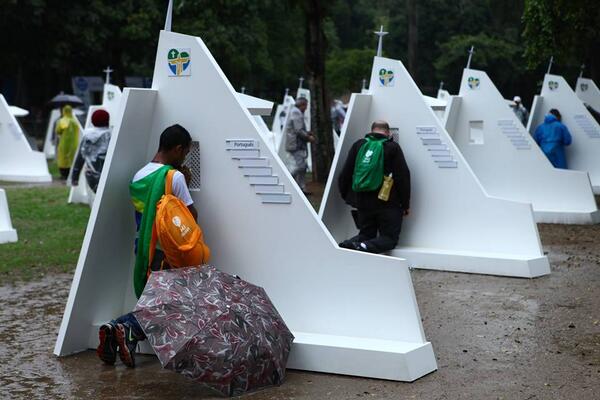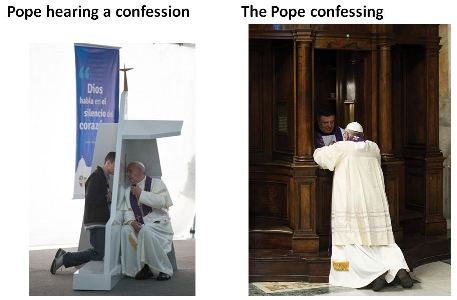In the sacrament of penance the faithful who confess their sins to a legitimate minister, are sorry for them, and intend to reform themselves obtain from God through the absolution imparted by the same minister forgiveness for the sins they have committed after baptism and, at the same, time are reconciled with the Church which they have wounded by sinning.
(Code of Canon Law, canon 959)
Like all the sacraments, Penance is a liturgical action. The elements of the celebration are ordinarily these: a greeting and blessing from the priest, reading the word of God to illuminate the conscience [note: I don't ever remember this being a part of any of my confessions] and elicit contrition, and an exhortation to repentance; the confession, which acknowledges sins and makes them known to the priest; the imposition and acceptance of a penance; the priest’s absolution; a prayer of thanksgiving and praise and dismissal with the blessing of the priest.
(Catechism of the Catholic Church, paragraph 1480)
It is apparent from these two quotes that the first important aspect of confession (that is, of talking to a priest about one's sins) as Confession (that is, as the Sacrament of Confession) is the penitence of the penitent, the one who is admitting sin. Without sincere and deep sorrow for one's sins, and a desire to perform penance for them, an admission of sin is no more than an admission. The priest may or may not understand from such an admission (perhaps considering the individual's general demeanor as well) that one desires Confession; that's a pastoral judgment call. There's no specific "language of confessing a sin" that will of itself signal to the priest that Confession is being requested, short of a straightforward request like "Could you hear my Confession?" (Of course, the priest could initiate that on his part: "Would you like me to hear your Confession?")
Place is not an issue: for example

And the Pope himself:

Do note a few things, though:
- Although I just said "place is not an issue", you probably want to choose a place where you're not likely to be overheard.
- Priests, and canon law, prefer hearing confessions in a dedicated confessional if at all possible, as a reminder that the penitent is not "in this alone", but is part of the Church:
The proper place to hear sacramental confessions is a church or oratory. ... Confessions are not to be heard outside a confessional without a just cause1. (Canon 964; sections 1, 3)
Thus the quick answer is:
- There's no particular use of "confessory" language that in itself signals that a Confession is taking place, other than the blessing mentioned above in the Catechism.
- Thus, the individual and priest must specifically agree in so many words that a Confession is taking place; after which, the usual liturgical language of the Sacrament will be indicated.
- An unusual place does not in itself invalidate a confession; but the confessional is preferred.
1 Just cause is a technical term meaning that the priest can see that justice would be violated if he did not take a given action. In this particular case, it means that the priest needs to see that the penitent urgently desires confession and cannot reasonably wait (perhaps they need to confess a mortal sin), and that a confessional is not reasonably available.
Cf. These YouTube videos:


